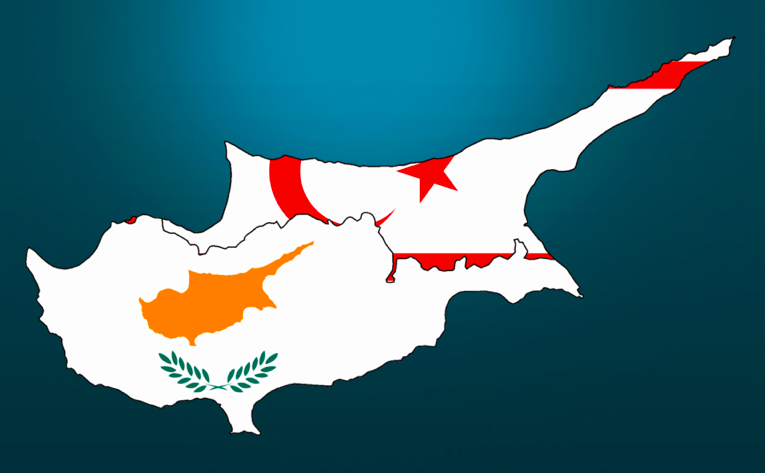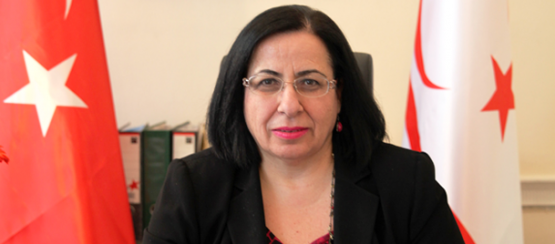I would like to take this opportunity to address the ill-informed and distorted comments made by seventeen Members of Parliament of the United Kingdom in a video published by the “National Federation of Cypriots in the UK” on the anniversary of the 1974 Peace Operation in Cyprus.
As it has become customary, the statements in the video published by the said Greek Cypriot organisation have been based on a biased account of the situation on the island and constitute a misrepresentation of facts, to say the least.
Firstly, let us put to bed the myth peddled by the Greek Cypriot side of “invasion” and “occupation”: there is not a single UN Security Council Resolution on Cyprus that refers to the legitimate intervention of Turkey as “invasion”. Indeed, it was the Greek Cypriot administration which unlawfully used force and subsequently occupied the 1960 Republic of Cyprus, and in doing so, destroyed the three-year-old partnership formed jointly by Turkish Cypriots and Greek Cypriots. Since then, the two sides have administered themselves separately and do not have any jurisdiction over the other.
Contrary to comments made in the video regarding Guarantor Turkey, it should be noted that it was Turkey’s vital intervention in 1974 which put an end to years of bloodshed on the island. This lawful act, carried out in line with the Article IV of 1960 Treaty of Guarantee – one of the three Treaties establishing the 1960 Republic of Cyprus – not only prevented the annexation of the island to Greece (Enosis), but also saved Turkish Cypriots from total annihilation. The perpetrators of these heinous acts were none other than the Junta in Greece and their Greek Cypriot collaborators, who staged a coup d’état in Cyprus on 15 July 1974 .
Even the then Greek Cypriot leader Makarios stood before the UN Security Council on 19 July 1974 and referred to the Greek coup as “clearly an invasion from outside, in flagrant violation of the independence and sovereignty of the Republic of Cyprus”. Moreover, the Athens Court of Appeal ruled in 1979 that the Turkish intervention was legal and that the real culprits were the Greek officers who engineered the coup.
It remains an unfortunate fact of history that Turkey was not joined in its legal endeavour by the other Guarantor power – the United Kingdom – to fulfil their obligations to restore peace and order in Cyprus. Since then, the Turkish Cypriot side has engaged constructively with the Greek Cypriot side to reach a negotiated settlement to the Cyprus issue, while the Greek Cypriot side has opted to pursue a defamation and isolation campaign against their neighbours and potential future partners.
TRNC London Representative Oya Tuncali urges the international community to “refrain from acting as a platform for Greek Cypriot propaganda”

The account of the events of 1974 were not the only misinformed claims in the video. There were also many erroneous statements concerning the hydrocarbon resources around the island of Cyprus. As the two co-owners of the island, the Turkish Cypriots and Greek Cypriots have inherent and inalienable rights and interests, as acknowledged by the international community and the Greek Cypriot side itself and hence must be involved in all aspects of this process, including decision-making.
Given these inherent rights, the primary question the seventeen British MPs should be asking is, ‘in the absence of the consent of Turkish Cypriots, with what legitimacy can the Greek Cypriot administration make unilateral decisions on the hydrocarbon resources issue?’
Failure to reach a consensus on how to manage this issue, as well as the insistence of the Greek Cypriot side to act unilaterally, despite multiple proposals by the Turkish Cypriot side to create a joint committee, most recently in July 2019, has inevitably led to reciprocation by the Turkish Cypriot side. It is now conducting its own activities in areas under its own maritime jurisdiction where licenses have been granted to Turkish Petroleum.
The current situation in the search for a political settlement in Cyprus should not obstruct cooperation between the two sides on matters which concern them both. Indeed, this is imperative if we are to develop a constructive relationship between Turkish Cypriots and Greek Cypriots, and between each side and international actors, which in turn can establish trust and interdependence between them.
The UN Secretary-General has openly stated in his report dated 10 July 2019 that it is high time the two sides cooperate on island-wide matters without clinging to surmountable obstacles. The UN Security Council concurs with this call.
For this to come to fruition, the international community should refrain from acting as a platform for Greek Cypriot propaganda. Efforts to build bridges between the two sides would be far better served if the international community urged the Greek Cypriot side to abandon its obstructionist isolation policy, and to instead focus on cooperation and direct communications with the Turkish Cypriot side.
This article was written by Mrs Oya Tuncali, the London Representative of the Turkish Republic of Northern Cyprus.





